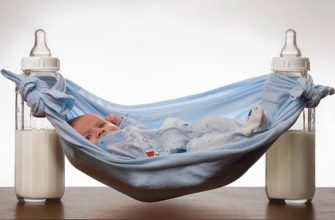Breastfeeding is very useful for mom and baby - this is a fact. In this article, we will not repeat well-known things, but rather tell you about the beneficial effects of breastfeeding, which were revealed relatively recently by the results of studies 2016-2017.

Once, even pediatricians recommended artificial feeding, but these times have long passed. Now all doctors are of the same opinion: there is no more wholesome food for a baby than mother’s breast milk. Breastfeeding brings invaluable benefits to the woman herself, while there are very few objective reasons for abandoning him.
At one time, a lot was said that mother's milk is rich in nutrients, vitamins, and protective antibodies that the baby needs. It is proved that this is the best food for a newborn, a lot has been said about strengthening the psychological connection between a woman and a baby during breastfeeding, although manufacturers of artificial mixtures tried to refute it with all their might. But why is breastfeeding so beneficial? The answers to this question will pleasantly surprise you.
Improving baby behavior
In June 2016, scientists made an unexpected conclusion: long-term breastfeeding (provided that it is not combined with supplementary feeding and complementary foods) positively affects the behavior of the child in the future, making him more calm and obedient.
The study was conducted in South Africa, where scientists analyzed the development of 1,500 children. It turned out that children who were exclusively breastfed up to 6 months of age, at 7-11 years old, pleased their parents with exemplary behavior. They made adults blush 56% less often compared to babies who were breast-fed for less than 1 month.
According to scientists, it is possible that such a big difference will provoke many long-term consequences. Indeed, children who behave badly often have low self-esteem and school performance. Reaching adolescence, they are more likely to exhibit a tendency to antisocial behavior, violations of the law, and mental disorders.
Of course, one cannot call breastfeeding the only, and, perhaps, even the main factor on which the behavior and nature of the child in the future depends. Nevertheless, he plays a certain role here.

Treating Asthma Symptoms
Bronchial asthma is one of the most common chronic diseases that children are exposed to. However, its causes are still not fully understood. At the moment, it is known that some babies have a genetic predisposition to the disease: gene variation in the 17th chromosome can become a fatal factor.In September 2016, Swiss scientists made a discovery: it turns out that breastfeeding helps in the treatment of symptoms of bronchial asthma.
The data of 368 newborns were carefully analyzed. All babies underwent genetic testing, and their mothers were asked by researchers to keep lactation diaries, noting the days when the children had symptoms of the respiratory system.
As a result, it was found that in infants with a modified gene in chromosome No. 17 on the days of breastfeeding, the risk of asthma symptoms decreased by 27%. So far, scientists cannot explain exactly how mother’s milk helps prevent an asthmatic attack, but perhaps this will become known later, since it is planned to continue research in this area.
[sc name = ”rsa”]
Stroke Risk Reduction
Breastfeeding is good for both the baby and his mother. This was once again proved by the results of a study in China, which was conducted in the summer of 2017. Scientists have found that breastfeeding helps women reduce the risk of developing cardiovascular disease and stroke in the future.
An analysis of the data of 289,573 Chinese women showed that those who were breast-feeding then had a stroke less than 8% and heart and blood vessel diseases less than 9%. For women who continued breastfeeding for 2 years or more, the risks decreased by 17% and 18%, respectively.
According to scientists, such results are due to the fact that lactation helps to utilize the fat tissue accumulated during pregnancy. This literally updates the entire metabolism in the body. The nursing mothers also benefit from the fact that they have to lead a “right” way of life, more carefully monitor the quality of their nutrition and give up bad habits.
Multiple Sclerosis Prevention
This disease can be confused with atherosclerosis due to similar names. Only multiple sclerosis is a more serious pathology. It develops against the background of "incorrect" reactions of the immune system, leading to the destruction of myelin - the nerve sheath, which ensures the normal conduct of nerve impulses. As a result, various neurological disorders are formed. Since scientists have not yet found an effective treatment for multiple sclerosis, the disease is gradually progressing, making a person disabled.

If atherosclerosis affects mainly the elderly, then middle-aged women are more prone to multiple sclerosis. A study released in July 2017 suggests that breastfeeding helps reduce the risk of developing this disease.
Scientists examined 433 healthy women and 397 patients with multiple sclerosis. All of them filled out questionnaires, answering questions about pregnancy and lactation. It turned out that those who breast-fed at least 15 months had a 53% lower risk of getting multiple sclerosis than women who continued to breast-feed for only 4 months or less. It is worth noting that the result was cumulative: 15 months could be "divided" into feeding two or more babies, but even in such cases the protective effect was preserved.
How and why lactation helps the mother to avoid multiple sclerosis, scientists themselves do not yet understand. It is hoped that future research will help find answers.
Pain relief after cesarean section
In 2017, Spanish scientists studied the factors that influence the appearance of pain after cesarean section. They interviewed 185 young mothers who underwent this operation in the period 2015-2016. Researchers asked women to talk about the pain that they felt a day after the operative birth, three days and 4 months later.
[sc name = ”ads”]
Participants were also asked to fill out questionnaires, in which, inter alia, it was necessary to answer questions about lactation. It turned out that mothers who were breastfeeding for at least 2 months were troubled by chronic pain 3 times less often.
The formation of proper microflora in the intestines of a child
The intestinal microflora of the baby begins to form from the moment it is born. In 2017Scientists from Los Angeles decided to check what role breastfeeding plays in this process, and conducted the largest study to study this issue. As a result, it was possible to establish that 30% of the beneficial microorganisms that live in the large intestine receive the baby through breast milk, and another 10% from the skin of her mother’s breast. In addition, breastfeeding continues to contribute to the growth of proper microflora, even when the grown child begins to transfer to solid food.
The results of this study became very important because they helped to better understand how the intestinal microflora of a newborn is formed and how this process can be influenced.
We also read:
- Are there any downsides to breastfeeding?
- Questions about breastfeeding: 10 things you need to know for a young mother
- TOP 100 useful tips for nursing mother
Breastfeeding: Benefits and Secrets









Naturally, there are a lot of pluses of breastfeeding, this is not surprising, but it seems to me closer to the year I need to introduce feeding, because the child may not get any enzymes and vitamins.
Breast milk gives the baby everything necessary for food and body health, as well as for the mother it is also good. But you need to be very attentive to yourself when feeding so as not to lose milk ahead of time. Many who simply do not have milk unfortunately.